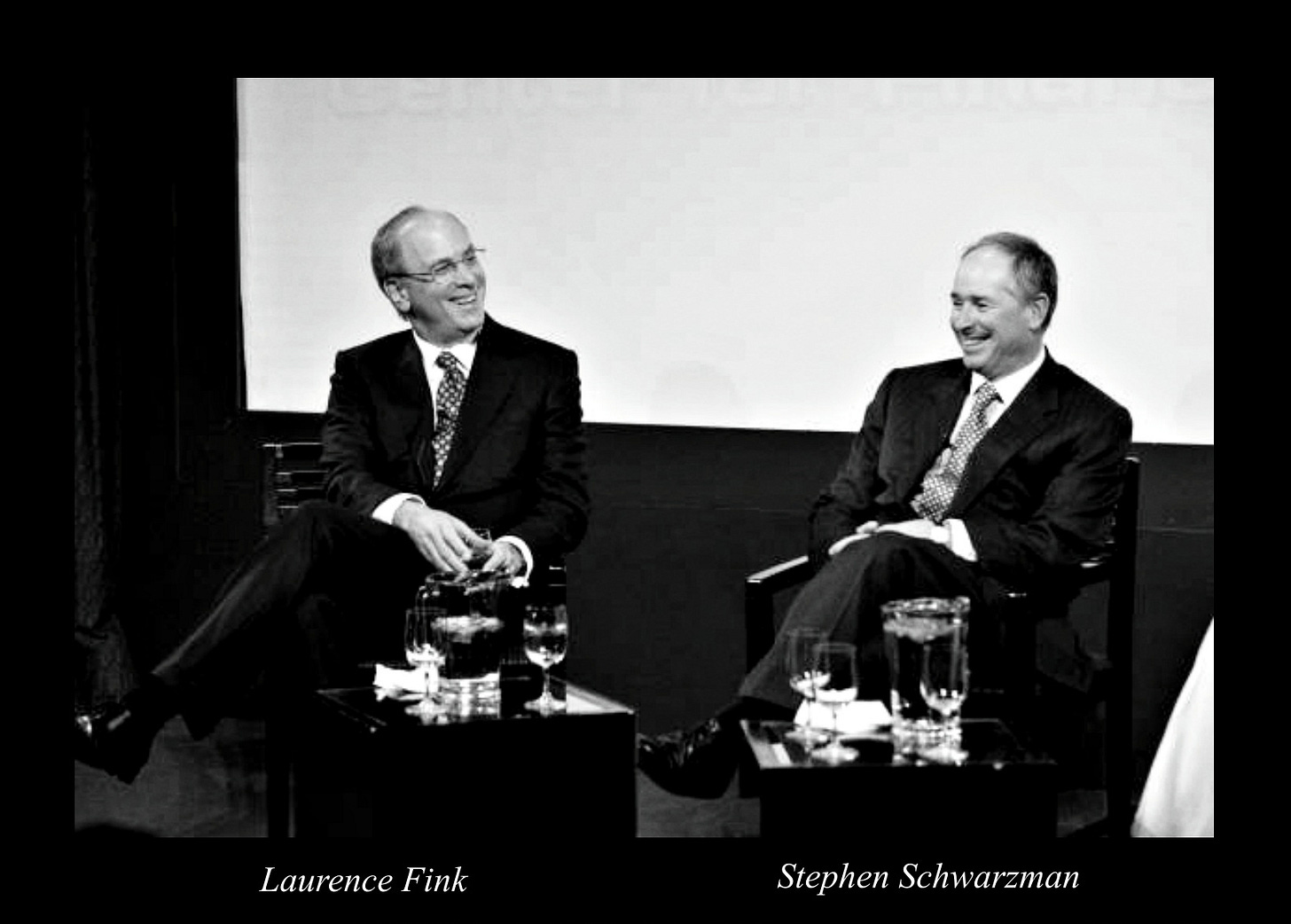The names BlackRock and Blackstone, share a common etymological origin. The name “Blackstone” is a clever linguistic nod which is derived from the German translation of the surnames of its co-founders Stephen Schwarzman and Peter Peterson.
Laurence Fink, who at the time worked at Blackstone, sought to retain the “black” theme when he decided to start his own investment firm. With Schwarzman’s approval, Fink considered names like “BlackPebble” and “BlackRock.” The latter was chosen, and BlackRock was created. The shared “black” in BlackRock and Blackstone names signifies the founders past connection and has become a legacy name for the two firms on Wall Street.
BlackRock and Blackstone each bring unique strategies and strengths to the table. BlackRock, the world’s largest asset manager, primarily focuses on public markets and passive investment strategies, managing a diverse range of assets including mutual funds, ETFs, and fixed income assets. On the other hand, Blackstone, the world’s largest private equity firm, specializes in private markets and active management, dealing with private equity, growth equity, and real estate.
Blackstone is known as being America's landlord, transcending into a multifaceted powerhouse its interests in real estate, private equity, debt, infrastructure, life sciences, growth equity, and insurance has enabled the firm to unlock growth with managing $1T.
Culture
Blackstone’s culture is steeped in the art of long-term strategic planning, both for its financial investments and its most valuable asset - its people. A weekly tradition at the firm involves scheduling meetings with all their global offices every Monday morning. This practice exemplifies Blackstone’s commitment to fostering an open and engaging work environment especially between among junior employees with senior management, including opportunities for meetings with CEO Stephen Schwarzman creating more inclusivity with its people.
Strategies
Specializes in private markets
Utilizes active management strategies with assets in the US and EU
Known for its expertise in alternative investments, such as private equity and real estate
Branding
BlackRock’s identity is shaped by its ambition to be a significant influencer for its valued clients. BlackRock doesn’t just aim to adapt to industry trends; it seeks to influence them with its $10T AUM. The firm is entrusted with managing substantial assets, reflecting the firm’s historical risk management method for bringing big gains for its clients. This sense of responsibility extends beyond mere financial stewardship; it’s an emotional investment in the success of the institutions they serve.
Culture
BlackRock’s culture is performance-driven, fostering a fast-paced environment that necessitates swift decision-making from its management teams. The constant change within the organization not only challenges the status quo but also propels its teams to adapt and operate at a rapid pace. Performance is key, with flexibility provided for a work-life balance. Compared to other Wall Street firms, BlackRock scales favorably. Employees generally have positive sentiments about the company culture, citing a great place to work, nice people, and a genuine interest in the asset management space. Some employees return to BlackRock after exploring other opportunities because its culture ranks higher.
Strategies
Focuses on public markets
Employs passive investment strategies
Offers a wide range of investment opportunities, including ETFs, MF’s and fixed income assets








